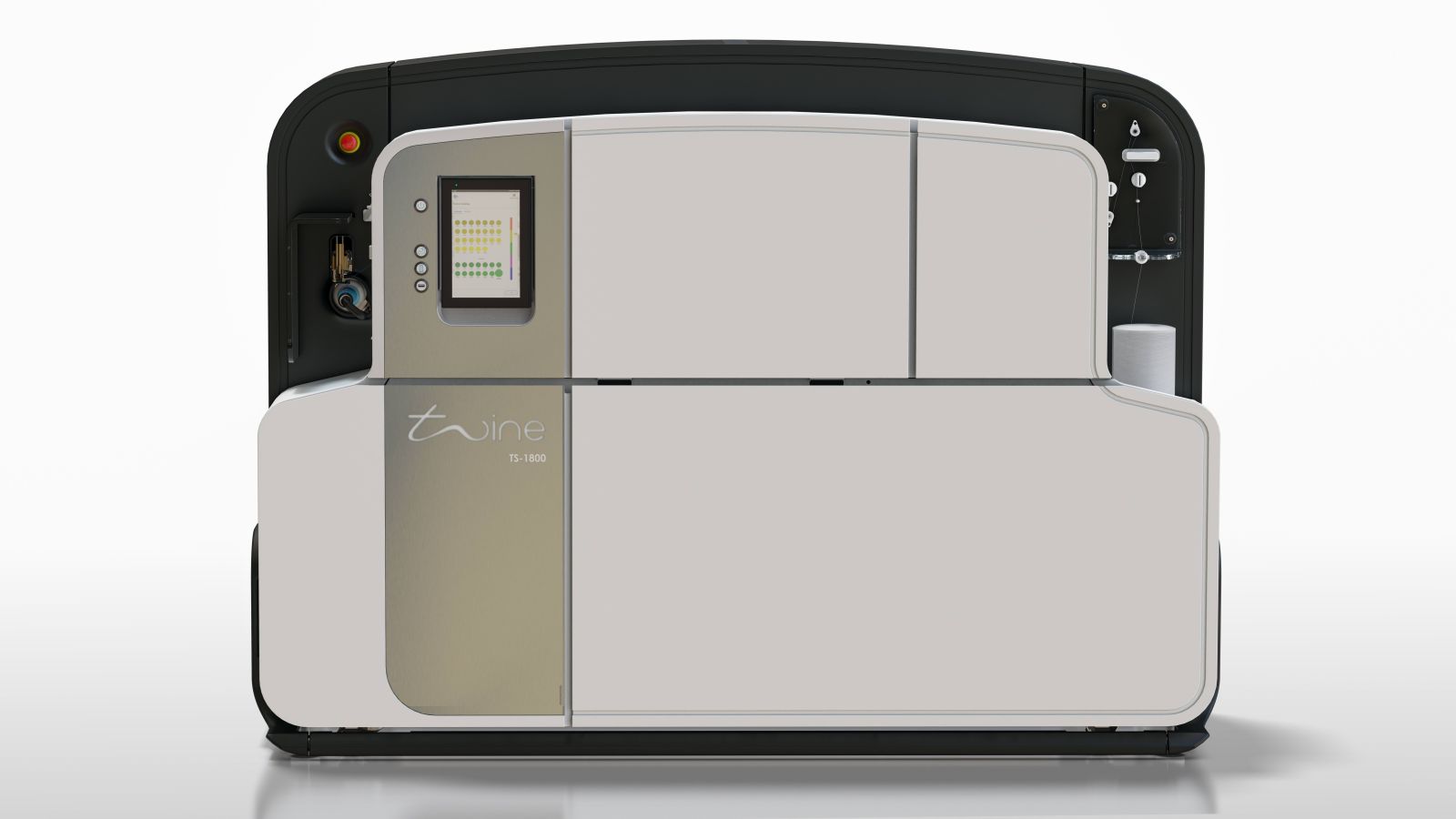Israeli startup twine wants to be the print-on-demand provider for thread.
Print-on-demand expertise revolutionized the e-book business, allowing publishers to eliminate costly stock and warehousing by means of printing books best in line with client orders.
As with books, twine's new Digital Thread Dyeing gadget allows apparel producers to color undeniable white thread by way of feeding the raw substances right into a fabric-selected digital printer most effective as necessary. The ensuing digitally dyed threads can be used in sewing, knitting and embroidery.
It's a radical alternate from the style the business has at all times operated, Yariv Bustan, cord's vp of product and advertising tells ISRAEL21c.

cord invented a digital printing system for dyeing thread on demand. picture by way of Ofir Abe
The normal manner is each time-ingesting and polluting; it begins when a manufacturer sends an order to a thread dyeing manufacturing facility, continually in India or China.
A pattern is dyed and shipped overseas to the brand. If it doesn't in shape the brand's requirements, the thread ought to be re-dyed and despatched again. All this may take weeks.
as soon as the color is right, the manufacturing unit dyes a big quantity of thread. If for any reason – from overly optimistic ordering to fast-altering style – the manufacturer doesn't need the entire thread ordered, it goes to waste. certainly, forty percent of dyed thread finishes up in landfills, Bustan says.
Dyeing thread the common manner additionally makes use of an immense amount of water – first to steam within the color, then to rinse the thread to color-fasten the dye. it will probably take in to 70 liters of water per kilogram of thread, Bustan notes.
The run-off from the dyeing technique is filled with poisonous chemical substances. "The fabric industry is the second most polluting trade on earth, answerable for up to twenty % of water pollution globally," Bustan says.
As recognition of dyeing's environmental affect grows, and with regulators starting to step in to curb the waste, producers have become more and more involved with making their businesses greater sustainable.

Yariv Bustan, VP product and advertising for wire. image: courtesy
cord uses no water in anyway. as soon as a color has been chosen, thread on a spool is sucked into the cord digital printing gadget, popping out the other end within the suitable color, whether that's a single color or a one which adjustments color mid- thread. producers may create their own exciting gradients.
moreover, when the dyeing procedure is moved from a agency in some distance-away India or China to the manufacturing plant, there's no should ship anything; that saves on transportation charges and reduces the trade's average carbon footprint.
"With cord, each thread client may be able to have their personal digital inventory," Bustan says. "they can have the entire threads and colors they could believe about, with out wanting even one pre-dyed spool."
twine also allows superior personalization — a feature massive brands are actually deploying in the fight for buyer loyalty. as an example, Nike permits shoe valued clientele to customize the color of the "swoosh" or the total higher a part of their Nikes. Lacoste permits patrons to customise the color of the enterprise's iconic alligator. Gucci permits buyers to customize the embroidery on a brand new bag.
"luxurious brands keep in mind that to preserve market share, they ought to be creative," Bustan says. specifically for millennial patrons, "it's not sufficient to effectively own a luxurious shirt or bag. You need your personal interesting shirt or bag."

photograph through Ofir Abe
Dyeing-on-demand makes this viable, Bustan explains. "as a substitute of manufacturing a product first and then selling it, as during the past, nowadays you first sell the product after which you should produce it very instantly. The consumer can't wait three to 6 months to get their order!"
twine's digital dyeing system is at the moment confined to polyester, but that's quality, Bustan says, as a result of "polyester is 50 p.c of the market." Nylon will come next. Working with cotton would require a special type of ink and a few technological tweaks.
A twin task
The company's identify is a play on words – cord is a form of thread, however additionally carries inside it the be aware "twin." twine's founders are similar twin brothers Alon and Erez Moshe.
Most of wire's team comes out of the digital-printing business – a section writ large by using pioneering Israeli groups akin to Indigo and Scitex.
both Alon, who's cord's CEO, and Erez have been worried in digital printing. in the future, after Erez had washed his arms, he came about to appear down at his towel and observed that the embroidery matched the colour of the towel. "How did they do that?" he thought. accordingly began the innovation of merging textiles and digital printing.
Erez Moshe had his epiphany 4 years in the past. nowadays, twine has 70 people on group of workers with headquarters in Petah Tikva. The business has raised $30 million from digital-printing and cloth-linked traders.

The wire T1800 digital printer for thread. photo: courtesy
one in every of cord's strategic investors is Coats, a 200-12 months-old industrial thread manufacturer and an immense participant in the crafts market. "They're a pacesetter on the typical analog side," Bustan says, but "they needless to say the trade is moving to digital."
other traders encompass HP Tech Ventures, New period Capital companions, Maverick Ventures Israel, Gefen Capital and Landa Ventures. The latter is the investment arm of Benny Landa's Landa Labs. Landa centered Indigo in 1977; he bought the company to HP in 2001 for $882 million.
twine, named some of the most well-liked Israeli startups of 2019 by way of TheMarker, is evidently in a profitable and starting to be space. The global textile market dimension is projected to attain at $1.2 trillion by way of 2025.
Bustan says twine has no precise competition for digitally dyeing threads. A Swedish business referred to as Coloreel dyes thread simplest for embroidery.
"It's a special conception," Bustan says. "You should put their unit on top of the embroidery head and run each machines together. With us, you can let the gadget run overnight or for 24 hours and also you'll have all the thread you'll want. we are software and thread agnostic." (As lengthy as it's polyester, of course.)
wire debuted its digital printer for thread remaining June at the international textile equipment association conference, the world's largest cloth and garment expertise exhibition. Bustan is now following up on dozens of leads from companies drawn to cord's technology to change their current polluting fact.
in the meantime, cord has put in its printers at Israel-based world apparel brand Delta Galil, which is beta checking out the equipment.
For more guidance click on right here
No comments:
Post a Comment